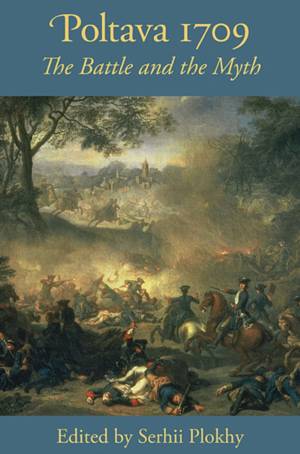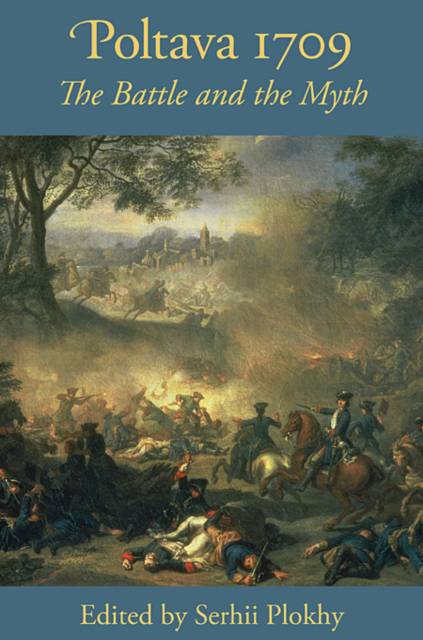
- Retrait gratuit dans votre magasin Club
- 7.000.000 titres dans notre catalogue
- Payer en toute sécurité
- Toujours un magasin près de chez vous
- Retrait gratuit dans votre magasin Club
- 7.000.000 titres dans notre catalogue
- Payer en toute sécurité
- Toujours un magasin près de chez vous
Poltava 1709
The Battle and the Myth
Serhii Plokhy, Kristian Gerner, George G. Grabowicz, Alexander Kamenskii, Alexander Kiebuzinski
Livre broché | Anglais
34,95 €
+ 69 points
Description
The Battle of Poltava has long been recognized as a crucial event in the geopolitical history of Europe and a decisive point in the Great Northern War between Sweden and the Russian Empire. The Russian victory at Poltava contributed to the decline of Sweden as a Great Power and was a major setback to Ukrainian independence. Hetman Ivan Mazepa, who joined forces with the Swedish king Charles XII against Tsar Peter I, remains a controversial figure even today.
In 2009, the Harvard Ukrainian Research Institute gathered scholars from around the globe and from many fields of study--history, military affairs, philology, linguistics, literature, art history, music--to mark the 300th anniversary of the battle. This book is a collection of their papers on such topics as the international, Russian, and Ukrainian contexts of the battle; Mazepa in European culture; the language and literature of the period; art and architecture; history and memory; and fact, fiction, and the literary imagination. Mazepa himself is the focus of many of the articles--a hero to Ukrainians but a treacherous figure to Russians. This book provides a fresh look at this watershed event and sheds new light on the legacies of the battle's major players.Spécifications
Parties prenantes
- Auteur(s) :
- Editeur:
Contenu
- Nombre de pages :
- 722
- Langue:
- Anglais
Caractéristiques
- EAN:
- 9781932650099
- Date de parution :
- 17-12-12
- Format:
- Livre broché
- Format numérique:
- Trade paperback (VS)
- Dimensions :
- 152 mm x 229 mm
- Poids :
- 997 g







